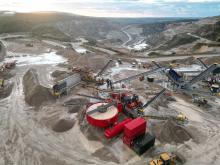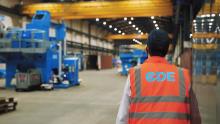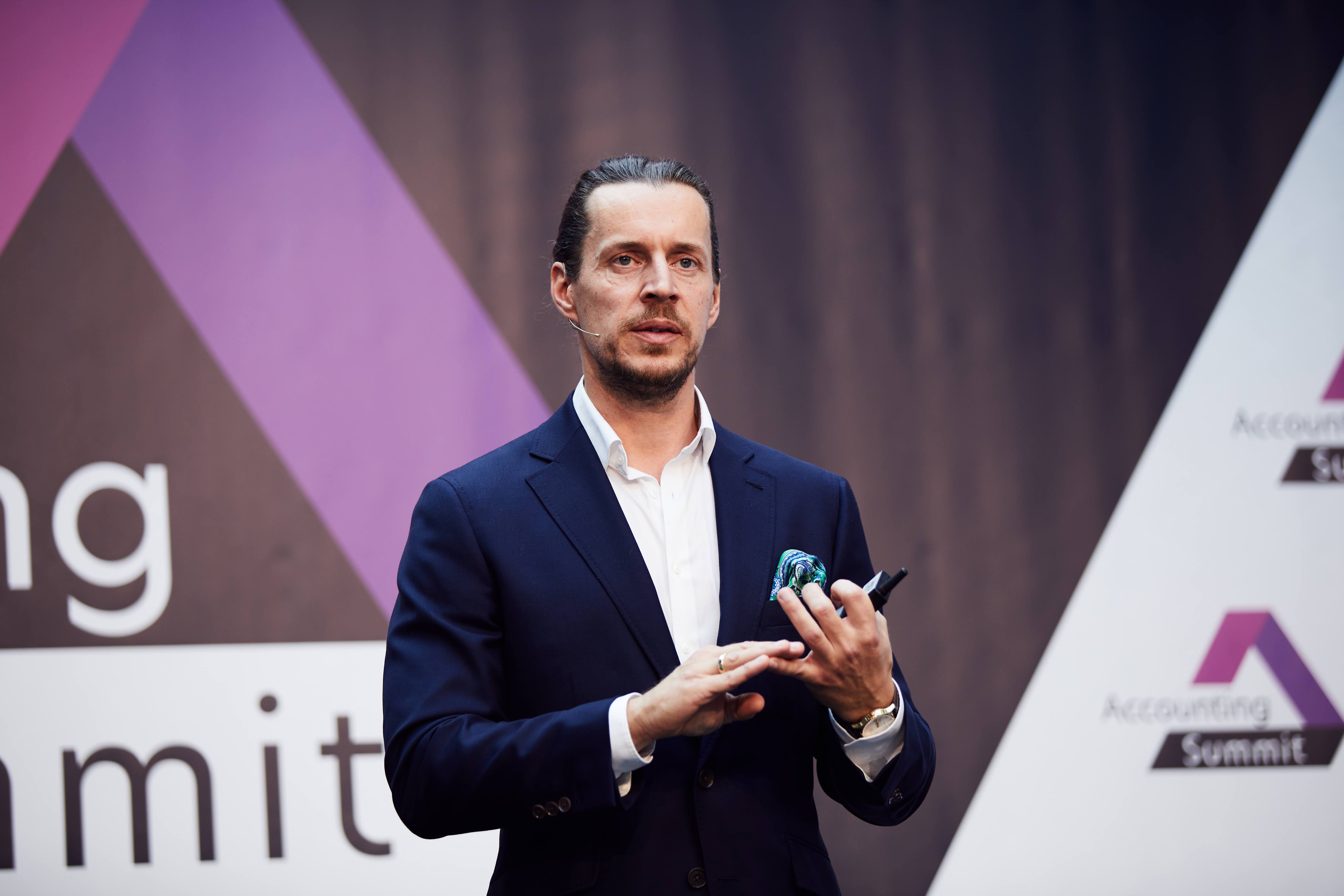
The German aggregates sector is experiencing tough times as the ongoing stagnation of the country’s construction sector continues to put serious pressure on the industry and its major players. To learn more, Eugene Gerden spoke to a Germany-based senior executive working for the world's biggest building materials supplier
The Russian-Ukrainian war had a major negative impact on Germany and its economy due to its traditional high dependence on cheap energy sources from Russia. The almost complete suspension of their supplies shocked the entire German industrial sector, including its construction and aggregates segments. Since 2022, the industry has overcome the most negative consequences of the energy crisis and a sharp rise in inflation, but the current situation remains generally complex.
The German crisis has become a challenge for most of the nation's local aggregates producers and global majors operating in the local market. One of those big players is the Swiss giant Holcim, a global leader in innovative and sustainable building materials, which traditionally had a strong presence in the German aggregates sector.
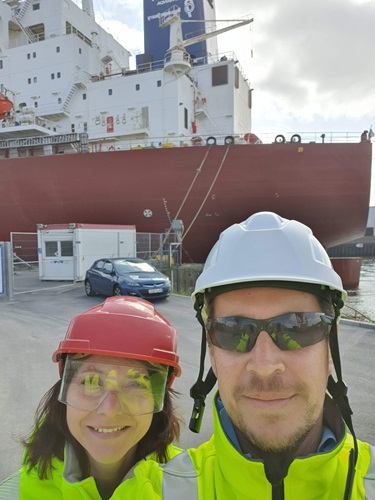
Jewgeni Friedrich Müller, general manager of Holcim's Aggregates business in North Germany (Region Nord), tells Aggregates Business that the recent crisis years represent a test of strength for Holcim.
Region Nord remains one of Holcim's largest aggregates divisions in Germany and the entire EU region. It currently consists of nine sand and gravel pits with a total production and handling capacity of approximately three million tonnes, five port terminals and two rail terminals. It supplies its products to major northern German cities such as Hamburg, Hanover, and Bremen.
According to Müller, the downturn in the German construction industry began in 2022 and got massively worse in 2023, especially among producers of building materials that supply residential construction.
He cites data from the German Federal Statistical Office showing that building materials production fell by 16.7% in 2023. Further figures showed that individual sectors even recorded up to 40% declines.
Müller says Holcim Region Nord and the entire German market has faced an oversupply of aggregates in recent years, mainly due to weak demand.
"Our customers in ready-mixed concrete and masonry construction are particularly suffering because the projects are delivered with delays or being partially cancelled."
Müller says the potential recovery within the industry is coming from stronger business in infrastructure projects. These include north-south power lines for green energy supply, LNG terminals, industrial buildings such as EV (electric vehicle) battery plants, and semiconductor plant projects. Müller says that active participation in these projects allowed the company to stay afloat in a challenging environment.
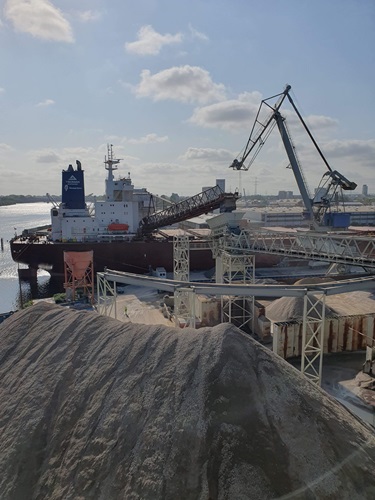
He continues: "Despite the very challenging market situation in Germany, we were able to stabilise our volumes and meet the needs of our customers. However, it is not all about volumes as it used to be in the past. We always strive to serve our customers by offering them an optimal combination of reliability, pricing and quality. We constantly move our business from volume to value."
Like other major market players, Müller says Holcim is constantly seeking strong strategic partners that fit its long-term ambitions in Germany and other key national and regional markets.
Müller says Holcim is primarily focused on extending its German recycling business to advance decarbonisation as a driver of profitable growth. He notes that the Euripean region as a whole is leading on circular construction, with more than 90 recycling centres in operation. According to Müller's data, Europe also made12 bolt-on acquisitions in aggregates, ready-mix and construction demolition materials in 2023 alone. Progress on decarbonisation accelerated over the year, from low-carbon formulations to carbon capture, utilisation and storage technologies.
As Müller stresses, circularity and sustainability will remain the main priorities for the company's development in years to come. "Concrete is just as recyclable as glass, you can recycle 100% of concrete in an infinite loop. We've been building up the infrastructure to make that happen today. We can also use concrete to build better with less. Design is essential to use the minimum amount of material for maximum strength. This can be achieved with performance analysis across the entire lifecycle of a building. We've been reinventing concrete to make it an advanced, sustainable building solution to play its role in Holcim’s net zero transition that we have embarked on as a company."
Müller believes it is also important to convince regulators, especially in Germany, to encourage everyone to embrace sustainable building solutions. He says there is still a huge bottleneck between what's technically possible today and their market adoption. "The aggregates business plays a vital role in this transition, while Holcim is working with a mass market product without going for a premium price," he emphasises. "We need to make recycled aggregates scalable, affordable, and accessible”.
Müller does not expect a sharp rise of the demand for aggregates both in Germany and global market during the period of 2024-2025, as the current business environment in the majority of global regions remains tough.
This year and 2025 will, predicts Müller, remain extremely challenging for the entire construction industry. However, he sees commerical opportunities that could be provided through better-equipped governmental funding programmes, more land for construction projects, less bureaucracy and rapid implementation of already green-lighted projects.
Müller says the decline of the German industrial sector by up to 40% in some markets in 2023 is currently considered as the major challenge for Holcim in the German aggregates’ market. Due to the weak demand it creates, the wider German aggregates industry is grappling with aggregates oversupply, potentially driving down product prices. Müller notes that if aggregeate prices fall below production costs, many companies will exit the German market. However, a specific level of production needs to be maintained to supply the market once the economy has recovered.
Germany's current high level of inflation is, adds Müller, also putting serious pressure on Holcim's national aggregates business. The company expects that pressure will grow throughout 2024. Due to high inflation, Müller says procured third party services and materials in Germany are getting more expensive for Holcim and other big global building material groups. He adds that if a company is not able to increase its own prices at the same rate there is less room for capital expenditure and expenses. In summary, the whole value chain is under immense stress.
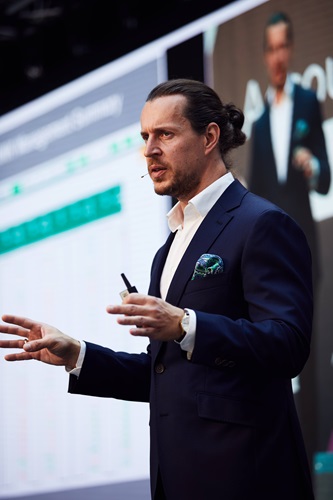
The ongoing Russia/Ukraine war is, says Müller, leading to an explosion of energy costs boosting the inflation rate. Holcim used to have operations in Russia as well as Ukraine. The group divested in Ukraine in 2013 (cement) and in Russia in 2022 (all). Müller says Holcim is still active in Ukraine, operating three aggregates quarries managed from Poland.
"The EU market will remain a priority in securing Holcim's further growth and development in the coming years, while attention will be also paid to the UK market. Holcim Germany already has very close cross-border cooperation with its partners in the UK, planning a further increase of production and supplies from its major assets in Great Britain. For example, we really appreciate the fantastic material from our Glensanda quarry which is unique and very popular in continental Europe."
Reemphasising the world's focus on circular construction and its significant impact on the German aggregates industry, Müller says: "Whereas before the aggregates business was focused on primary resources one can see today a gradual shift towards secondary resources. The biggest challenges concerning the recycling materials are the sourcing of the proper construction and demolition materials and meeting the minimum quality standards."

